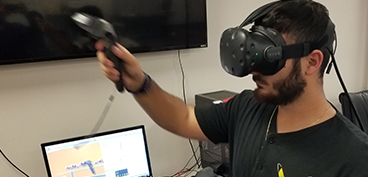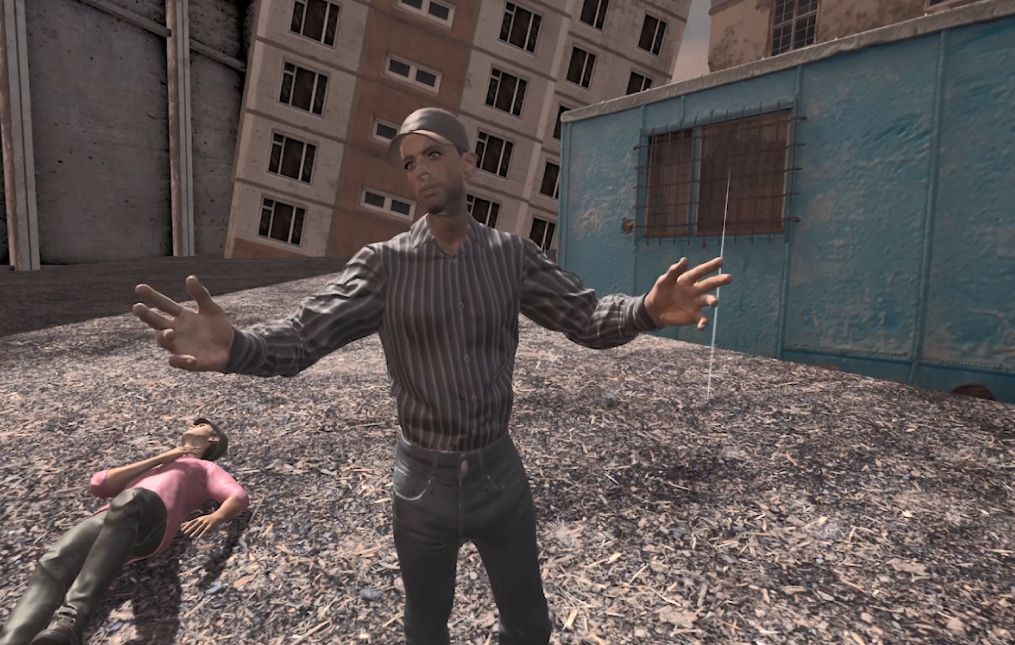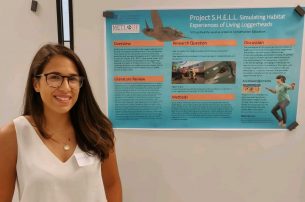METL to Unveil VR Journalism Training Simulator at World Journalism Education Congress (WJEC) in Paris, France
DUD is set to be unveiled at the Fifth World Journalism Education Congress (WJEC), scheduled to take place from July 9th – July 11th, 2019 in Paris, France. The WJEC brings together journalists and scholars to discuss the advancement of journalism education around the globe. Through creation and implementation of the DUD, METL Director Dr. Sri Kalyanaraman hopes that students around the world can benefit from the immersive training scenarios which are being built by Ricardo Amaya, Rahul Singh Bhatia, and Daniel Pimentel.
DUD focuses on training future journalists to handle intense situations by placing them in an immersive, and life-like, virtual reality (VR) environment. The goal is to help journalists enhance their story-telling skills by applying their reporting knowledge within a simulated world that mimics what they may find on the job as a reporter. In one scenario, journalists must report on a fatal car accident, interacting with virtual officers, witnesses, and victims to acquire information and complete their reporting duties, for example.

According to the WJEC, that type of alternative training is what upcoming journalists need. The primary topics of this year’s congress include training students to work in times of conflict, for example.
The DUD project goes above and beyond that principle, and it also proposes using VR to simulate environments ranging from a political protest to a war zone. In a virtual world, students can freely make mistakes and learn from the outcome of a simulation. Furthermore, stress stimulants created by the simulation force students to work under pressure. In a classroom, high-stress scenarios are rarely available. Many students obtain minimal amounts of reporting experience apart from stories featured in their school newspaper. DUD substitutes part of the classroom environment to provide students a reliable source of simulated field experience. Additionally, the trial-and-error style of practice provided can improve skills like interview techniques, as users are given feedback after their simulated reporting.

For now, METL will focus on the study of a prototype simulation, and moreover, it will compare and test a variety of scenarios that will be applicable from an educative perspective.
To learn more about The World Journalism Education Congress, please visit their website.
Posted: April 8, 2019
Category: Conferences, News

